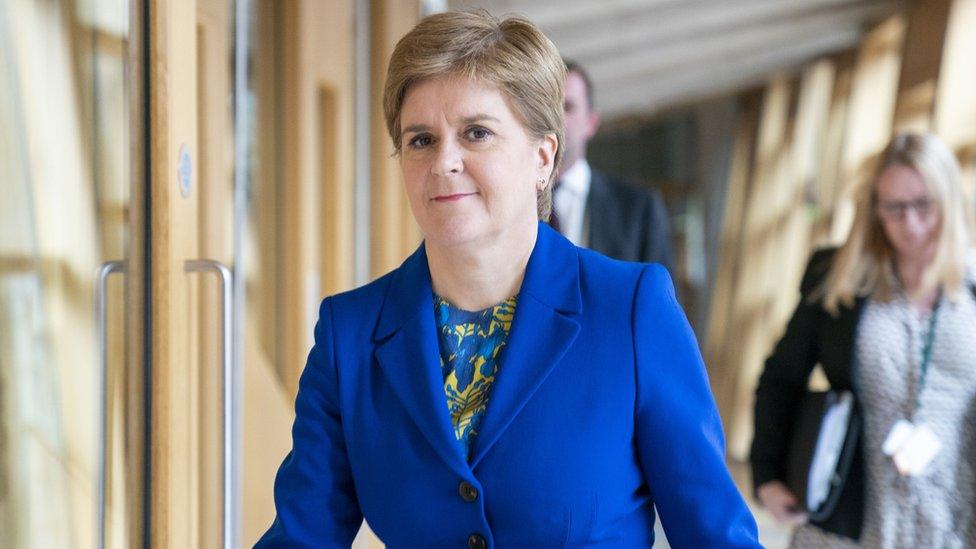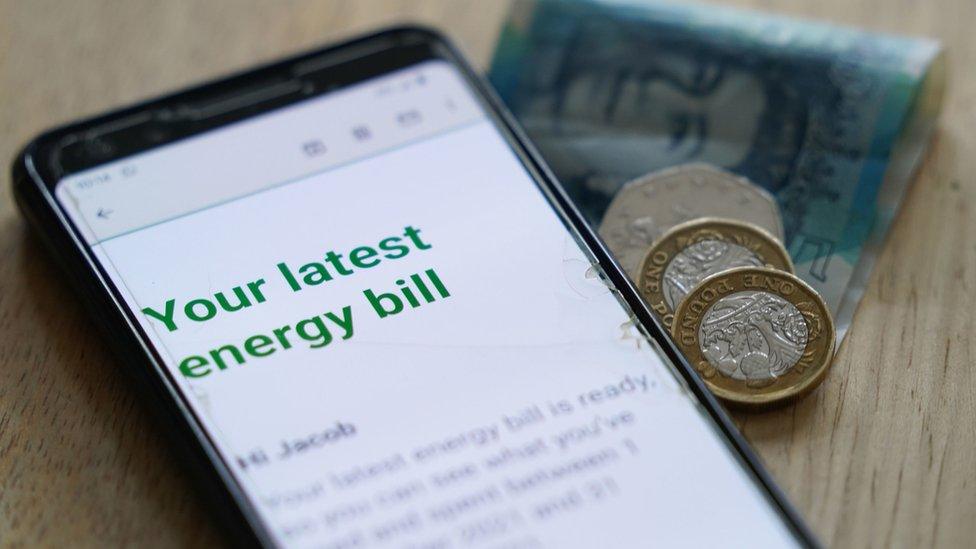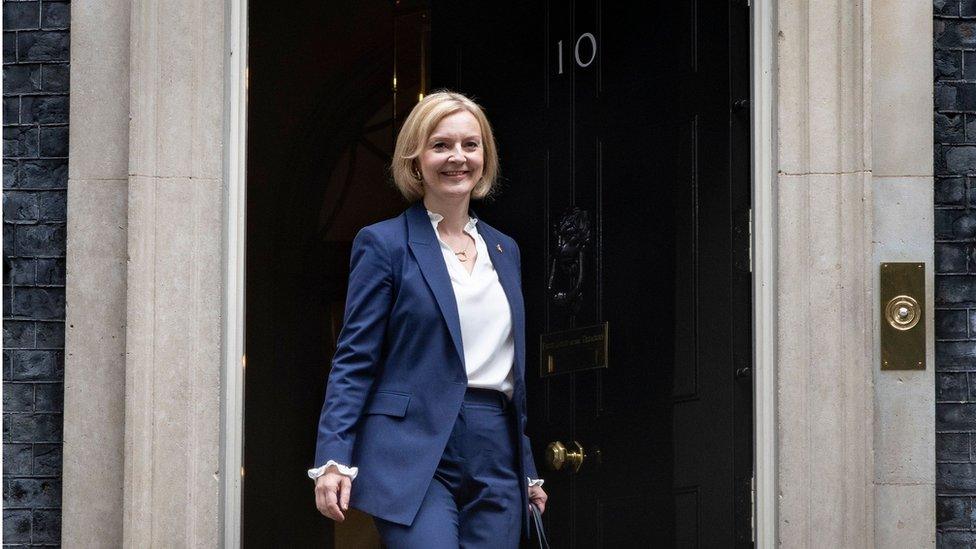Nicola Sturgeon says public should not foot bill for energy plan
- Published

Nicola Sturgeon announced a freeze on rent in Scotland earlier this week to help with the cost of living crisis
Scotland's first minister has said the public should not have to pay the full cost of new plans to tackle soaring energy bills.
Nicola Sturgeon said oil and gas firms should also contribute to the massive costs of the plan unveiled by new prime minister Liz Truss.
She also said the proposals meant bills would still rise from their current levels.
Energy bills for the average household will be capped at £2,500 from October.
The support will last for two years, Ms Truss told the Commons, with additional help also being given to businesses, saying "this is the moment to be bold".
A typical household's gas and electricity bill had been due to rise from £1,971 to £3,549 at the start of next month.
Gas prices have soared this year, largely due to the conflict in Ukraine which has reduced supplies of Russian gas.
Speaking at first minister's questions, Ms Sturgeon described the prime minister's plan as "very belated".
And while she welcomed the proposals, she said they still meant bills would be rising from their current levels next month.
The first minister said: "If we go back to the spring of this year, average energy bills were around £1,200 so people are seeing soaring energy costs because of a broken energy market and the utter incompetence of this UK government.
"As things stand all of the costs of what has been announced today are going to fall on consumers and taxpayers when oil and gas companies making windfall profits should be making a contribution.
"So I think we can see whose side the UK government is on".

Bills for the average household will be capped at £2,500 from October
It is thought the energy bill scheme could cost up to £150bn, with Ms Truss saying that "extraordinary times call for extraordinary measures".
It will see the UK government compensate energy firms for the difference between the wholesale price for gas and electricity they pay and the amount they can charge customers.
Businesses will also have their bills capped, but only for six months.
The final cost of the scheme will depend on the cost of energy on the international energy markets, which can be extremely volatile.
The money to cover the support will be borrowed by the government, which will add to the UK's already large debt pile - but Ms Truss has rejected calls for a windfall tax on gas and oil company profits to pay for the package.
The government will, however, launch a new oil and gas licensing round as early as next week, which is expected to lead to over 100 new licences for the North Sea.
The move is part of efforts to ensure the UK exports more energy than it imports by 2040.

Ms Truss announced the energy bills plan two days after becoming prime minister
A new Energy Supply Taskforce will also start negotiating long-term contracts with suppliers that would reduce the price they charge and increase the security of supply.
Scottish Secretary Alister Jack said the intervention by the UK government was on a "monumental scale" and significantly bigger than the Covid furlough scheme.
He said: "This support will provide vital help for families up and down the country at this very difficult time.
"The prime minister's package will also support Scottish businesses, as well as schools, hospitals and the other public buildings we all depend on."
But Scottish Labour leader Anas Sarwar said the plan did not go far enough, adding: "Let's be clear - this is not an energy price freeze.
"There is not enough support for businesses and charities and there is no windfall tax meaning households and businesses will pay in the long term, not companies making record profits."